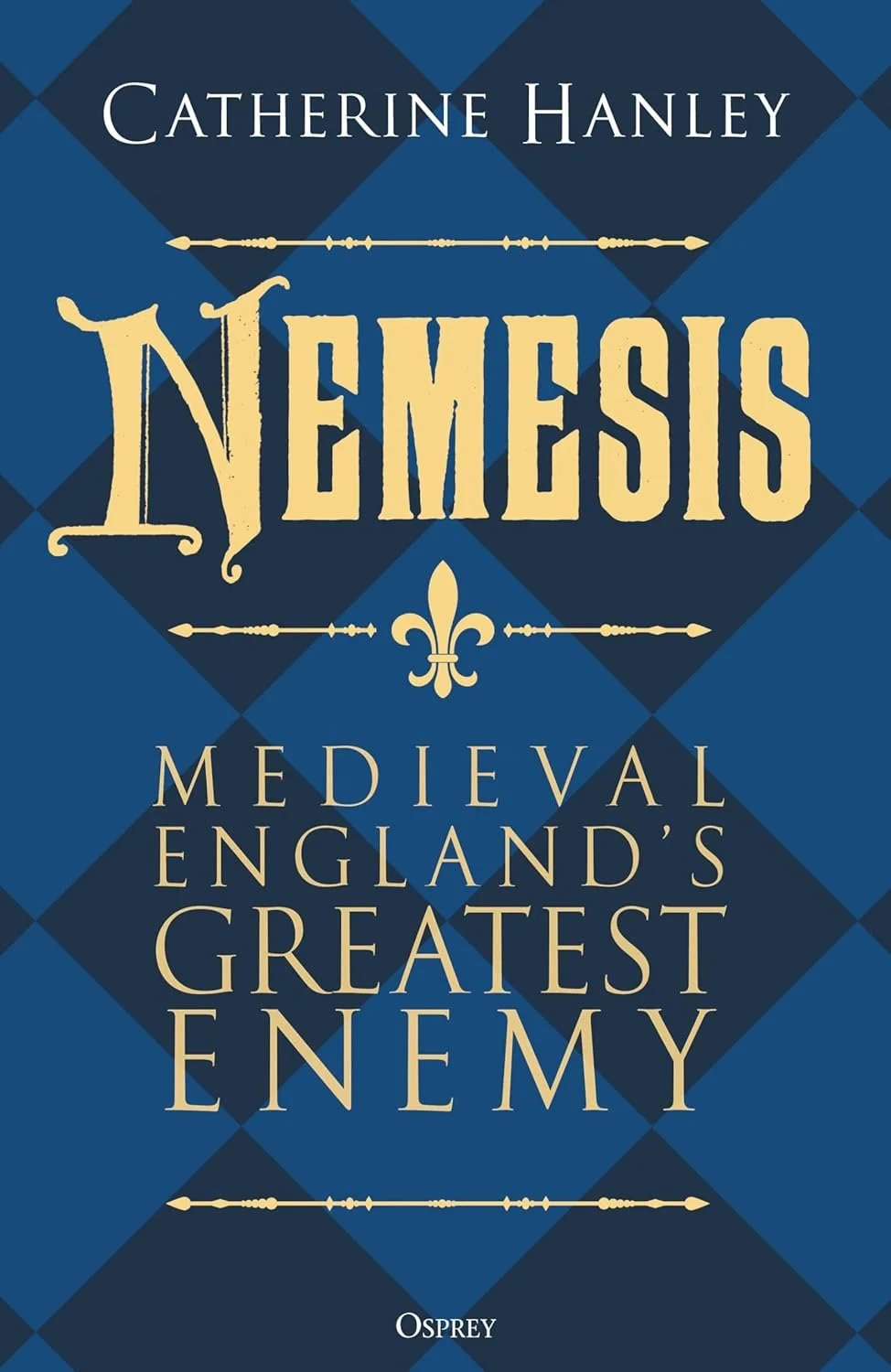Nemesis by Catherine Hanley
/Nemesis: Medieval England’s Greatest Enemy
By Catherine Hanley
Osprey Publishing 2025
Although Nemesis, the title of her new book, gives a fairly strong hint of things, Catherine Hanley lays things out explicitly right at the start of her narrative, telling readers that although her book is about the famed Capetian monarch Philip Augustus, it’s “not a biography of Philip in the traditional sense.” Rather, she goes on, “it is the story of his relationship with the Plantagenet family – Henry II, his sons and grandsons – so it will focus on his activities in that area and will have less to say about other aspects of his reign.”
It's a rare thing for any author to offend the shades of literally all their principal characters, but Hanley has surely done it. Philip himself might have had a slightly self-satisfied smile at such an allowance, but all the Plantagenets mentioned – King Henry II, his sons young King Henry, Richard, Geoffrey, and John, and his grandson Henry III – would have been furious at having their story so tightly yoked to the story of the man who bedeviled their entire bloodline so persistently and successfully for so long.
Despite the warning, Nemesis works just fine as a traditional biography of Philip; after all, a huge percentage of his life genuinely was entwined with the acts and fortunes of the Plantagenets. This book, brought out in a sturdy if visually bleak (there are maps and family trees, and then you’re on your own) edition from Osprey Publishing, is full of Philip’s obviously spotlight personality, thanks to the comparative wealth of original sources. And the story is peppered along with Hanley’s frequent footnotes, enlivening things and keeping them refreshingly grounded. When Constance of Brittany decides to marry for the third time in October of 1199, for instance, Hanley adds a little human note at the bottom of the page: “In addition to political considerations, there was a thought among contemporaries (and one which is supported by most later scholars) that Constance chose her new husband at least partly on the basis of personal preference,” she writes, “ – and, we might ask, given what she’d had to put up with during her first two marriages, why shouldn’t she?”
Those original sources might be fairly healthy, but they don’t free a biographer from typical biographer speculation. To her credit, Hanley usually restricts this activity to fairly undebatable basics, like imagining Philip on the eve of a major battle:
We cannot know exactly what was going through his mind as he sat there on his restless warhorse, surrounded by other mounted and armed men, but it would be reasonable to guess that he experienced a combination of thoughts and feelings. He would hardly have been human had there not been an element of the deeply personal: What will happen to me in the next few hours? Will I be injured or killed? And, as a field commander, some wider questions: How will my army fare during this encounter? How will they fight, and how will I know? Who will I lose?
The Philip Augustus who emerges quickly from these pages, drawn from those primary sources and a bibliographical wealth later biographies, is an obviously remarkable character, from the moment his father died and he took control of the monarchy without anybody even seeming to consider the creation of a regency council for a boy so young. At every stage, Philip is canny instead of hot-headed, playing the long game against enemies who usually think only about the next outburst of their rage. And Hanley is mercilessly clear about what that got him: dying peacefully in his bed as king of a strong, wealthy France, having watched all his Plantagenet adversaries fail to beat him while he “outwitted, outfought and now outlived them all.”
Steve Donoghue is a founding editor of Open Letters Monthly. His book criticism has appeared in The Washington Post, The American Conservative, The Spectator, The Wall Street Journal, The National, and the Daily Star. He has written regularly for The Boston Globe, the Vineyard Gazette, and the Christian Science Monitor and is the Books editor of Georgia’s Big Canoe News
